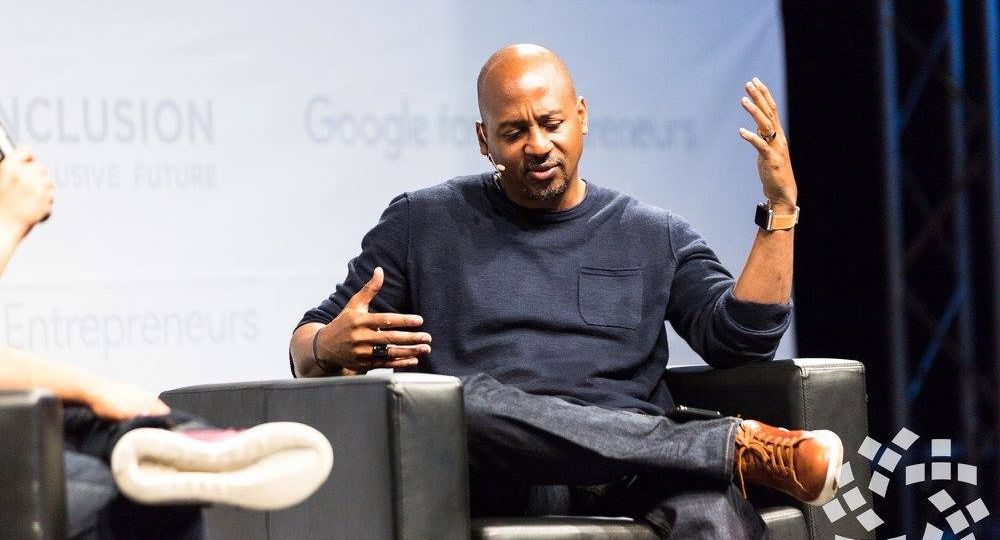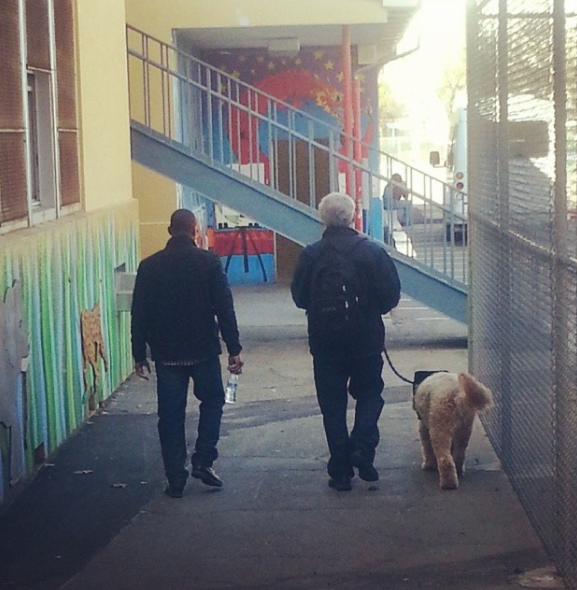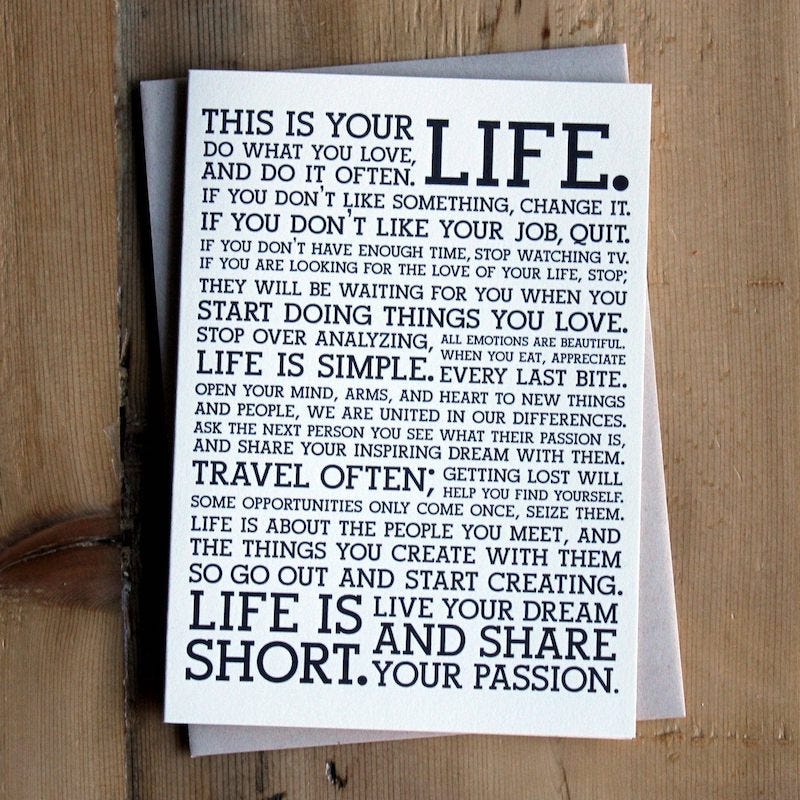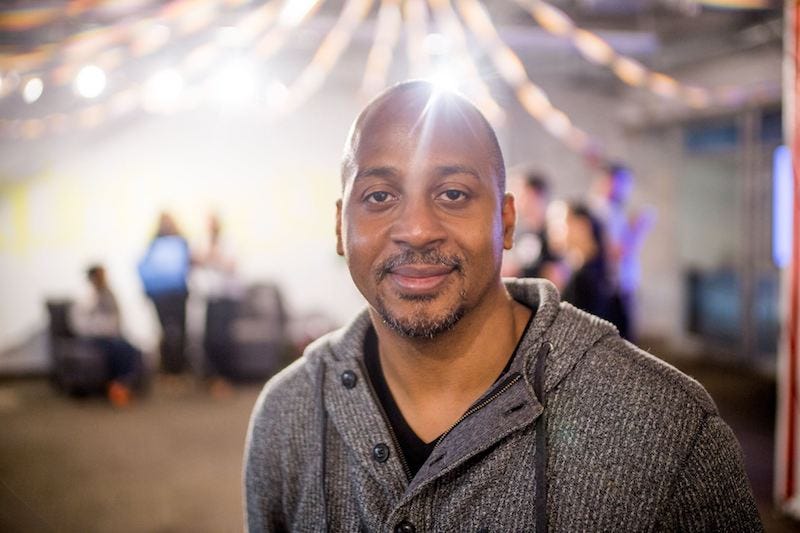
There was a time I wanted to change the world. I tried to change the tech industry. Now I just want to change my thinking. I have struggled with depression on and off since 2011 that I’m aware of. My peak depression level came early 2013 after moving from Raleigh, NC to San Francisco. The move didn’t cause my depression, but the lack of self-awareness that I was even depressed almost killed me. As an entrepreneur, one of the most successful behaviors you can develop is the skill of self-awareness. Learn what it means to know what you don’t know and how you are feeling. Learn the ability to process your emotional state of being.
I didn’t have that skill in 2011; I wasn’t processing my emotions, how I was feeling and even worse, how I was making others feel around me. I wasn’t processing how my behavior was affecting my confidence. Confidence is everything. I know this. But understanding you need to work on your confidence and being confident is another. Projecting your confidence in your work can lead to peak success.
Discussing mental health has always been a taboo in America, in tech and especially in the black community. Historically, conversations around mental health are seen as a weakness.. As a black man, the stereotype is to be emotionally and physically strong. You never cry, never complain, you survive, you endure. Showing any sign of weakness says that you’re soft. While growing, I never used words such as empathy, or compassion to discuss my feelings. If I didn’t feel well emotionally, often the solution was religion, medicine or outdoor activities, aka avoidance. Very few times, if any, would I hear, ‘why are you thinking a certain way or feeling a certain way’. The concepts of self-awareness and emotional intelligence were not part of my upbringing.
Once I started to understand the process of self-awareness, then I started to realize I was depressed. To say it was hard at first is an understatement. At peak depression in 2013, I didn’t want to live. I needed help. Luckily over the years, I’ve had several friends who helped me survive and get help. I’m forever grateful for their support, love, and friendships. Since then, I’ve started the process to learn more about my emotional state. First I had to take responsibility for my mindset and then take action to work on my depression daily. I’ve started seeing a therapist, meditating and working out to heal. While healing, I began to constantly ask myself “what makes me happy.” The journey to happiness in mid-2013 was just what the doctor ordered.. But it was a process.

While working to overcome my depression, I was still in San Francisco, going through the life cycles of entrepreneurship, working for a startup, launching a startup,, meeting with investors, raising money, looking at job opportunities, launching hackathons and winning hackathons. All this after I decided to leave the startup incubator/accelerator that I co-founded in 2011. Looking back at all the meetings I’m surprised I raised any money or got any meetings at all, but I’m not surprised by the outcomes. There’s a strong pressure in Silicon Valley to highlight your wins and reframe failure as success. I’ve had success. But this is a hard look at where lack of confidence cost me real opportunity, over and over.
To put it in perspective, since 2012 I’ve had a one-on-one meeting with everyone from Mitch Kapor, David Drummond, Ben Horwitz, Charles Hudson, Jack Dorsey, Shellye Archambeau, Rick Klau, Ken Coleman, Mary Grove, Stacy Brown-Philpot and other household CEOS, tech investors and executives. I’ve attended some exclusive events, such as TED and several private events. Thinking about each of those meetings, I know how the Silicon Valley network effects and culture works. You’re always selling yourself. You want to present your best self. You want people to like you, trust you. People must feel confident that you’re able to complete the task or idea you’re selling. I know this. I’ve coached founders on pitching, helped founders raise millions of dollars, sell their companies and establish partnerships. I was excellent at giving advice, but I sucked at living the advice for myself. With depression, there’s fake it ’til you make it, and there’s reality. How can sell yourself when you don’t even believe in yourself? Despite my emotional struggles, I’m still paving a pathway for myself in tech.
Some Lessons learned from depression:
1) Be honest with yourself
2) Once you start feeling depressed, acknowledge it and seek help
3) Find out what makes you happy and repeat it
4) Get out of your comfort zone and do something fun
5) Talk to and trust real friends
6) Work towards security (Maslow’s hierarchy of needs )
7) See professional help, therapist
As I kept working in tech, I had to take responsibility for my happiness and success. Depressed or not. Slowly I started feeling better emotionally over the last three to four years, but I noticed another emotional roadblock, impostor syndrome. Impostor syndrome is a feeling that you’re a fraud. An inability to internalize my accomplishments via Wikipedia. To me, imposter syndrome is the killer of confidence. I hate it! What’s worse about imposter syndrome is when you don’t know when you’re projecting the fraud type behavior to others. Imposter syndrome can cause all types of feelings. Feelings of failure, a sense of not being satisfied, feelings of not knowing your strengths. Now that I’m more aware of impostor syndrome I can help manage it in meetings, but it’s not easy. For example, a couple of months ago I saw Biz Stone in SF. He was leaving Twitter HQ. Biz asked me what I was working on. I shut down; I didn’t feel confident to tell him what I was doing. The same thing happened when I saw Eric Ries in a cafe a couple of weeks ago. Another example is job interviews. While I love being a founder and an entrepreneur, I’ve explored a couple of job opportunities over the years. All of the jobs, I know I could do with my eyes closed, or I’m overqualified with my experience, but I suck at the interviews. I have a challenging time selling myself and selling why I would be the best person for a role. As much as the tech industry preaches learning to code, the skill to project confidence by selling your abilities is the number one skill to have.
Recently I met with one of my mentors. His advice was don’t be afraid of failure. Don’t be afraid of trying new things.It was advice I needed to hear, but also advice I’ve stopped living. That is what depression and imposter syndrome can do you to you. It’s like death by a thousand cuts, but in your mind.
Lessons learned from Impostor syndrome.
1) Create a mental confidence exercise
2) Surround your self with positive quotes (Holstee manifesto)
3) Meet with peers and people who are in positions/careers you can learn from
4) Create an accountability network
5) Read: How to Combat Impostor Syndrome by Melinda Epler

Continuing to practice self-awareness, two years ago I realized that I’m an introvert. I love being an introvert. Introvert behavior is often misunderstood as being shy, which I am not. While there are various introvert definitions, I’m defining introvert as someone who prioritizes their own thoughts, feelings and environments.
After embracing the introvert lifestyle, it has helped understand why I work well in specific environments and why I shut down emotionally in other situations. For example, I perform well in one-on-one meeting if it’s more casual vs. group events, such as socials happy hours or parties. I would rather stay behind the screen vs. having to talk to multiple humans. Also as an introvert, I now understand it may take me longer to process group conversations. Introverts are thinkers. We need time to prepare. Meanwhile the tech industry escalates with parties, extravert activities, and networking.. I used to fuel off those opportunities and events. But once you combine depression, imposter syndrome and introversion, it’s like creating a mind poison. A slow poison that tells you not to go to any events, not to send emails that could lead to valuable opportunities. A poison that says, shut out the world and you’re not good enough.
Lessons learned from life as an introvert
1) I’m still learning
2) Read Quiet: The Power of Introverts in a World That Can’t Stop Talking
Book by Susan Cain
3) Read a post I wrote earlier this year: 11 Ways The Professional Introvert Can Practice Self Care In 2017
There are excuses, and there’s mental health. Add stereotypes to the mix, and you have a society of patterns trying to live up to an unrealistic set of expectation to live a life a success defined by unreasonable humans in power.
As humans, we don’t discuss mental health enough. We don’t value psychological health or respect it until often it’s too late.
Reflecting on the past five years in San Francisco, it has been one hell of an emotional rollercoaster. I’m still learning and growing. Emotionally it has been a struggle. I’ve been thinking about writing this post for a couple of years now, and it feels good just to release it. The path to confidence is an ongoing work in progress. I have acknowledged that my lack of confidence is not only hurting myself, but my company and everyone around me too. This post is part of my journey to improvement. It’s self-awareness. This is understanding that I must work on depression daily. This is recognizing how impostor syndrome affects my behavior and learning how to overcome it. This is acknowledging that what I say and feel about myself is what I project in the world. If I see myself as a black, country guy from NC who loves tech, I’ll act like one. Instead, I’m going to practice acting like an award-winning entrepreneur, speaker, writer that has raised millions of dollars in Silicon Valley whose life goal is to inspire entrepreneurs to use to technology to change the world… after I take care of myself first.

#KEEPMOVINGFORWARD
Wayne Sutton is a serial entrepreneur and co-founder of Change Catalyst and its Tech Inclusion programs. Change Catalyst is dedicated to exploring innovative solutions to diversity and inclusion in tech through the Tech Inclusion Conference, training and the Change Catalyst Startup Fellows program. Wayne is a New America CA Fellow.